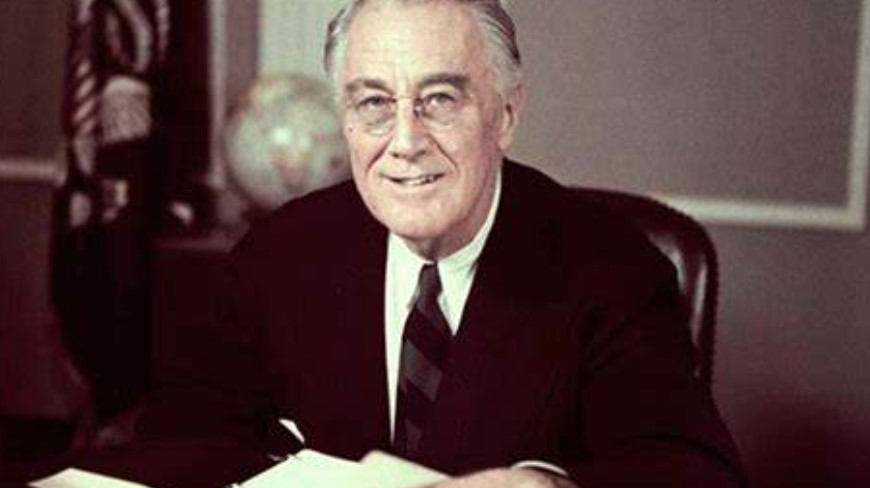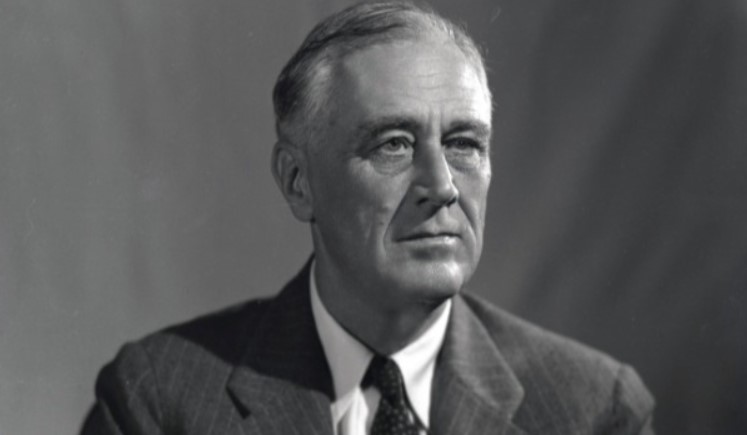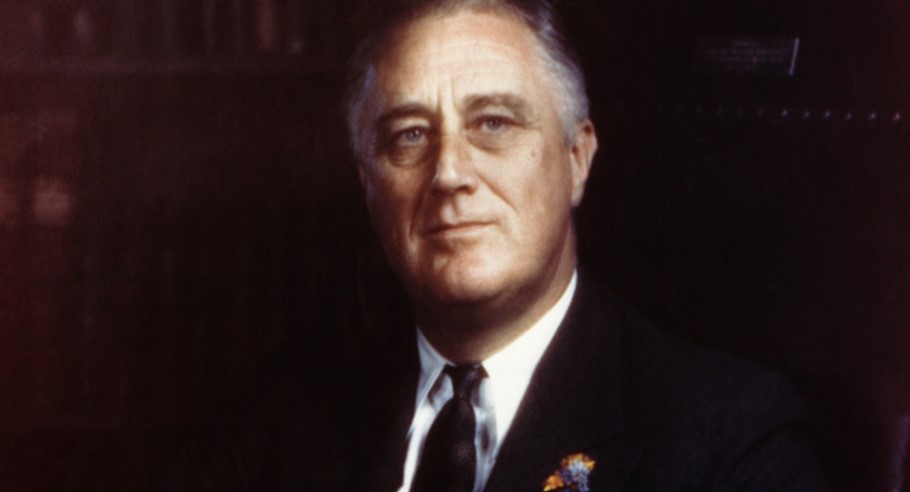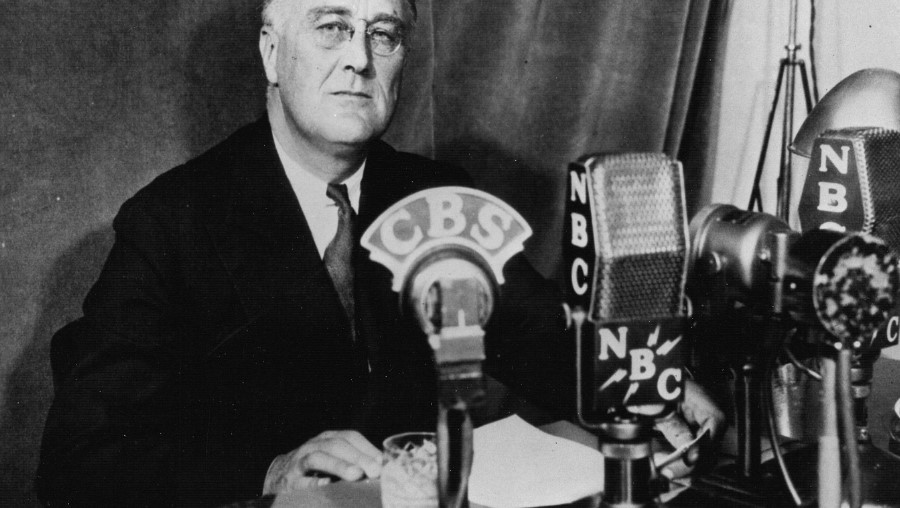Franklin D. Roosevelt, before becoming president of the United States, was elected to the New York State Senate in 1910 as a Democrat. A year later, he worked under Josephus Daniels as the Navy’s Assistant Secretary.
During the 1914 election cycle, he sought the Senate seat representing New York in the United States Senate. The Democratic National Convention tapped Roosevelt as their running mate six years later. Even after learning he had polio in 1921, he continued to pursue his political career.
From 1929 to 1932, Roosevelt was the Governor of New York. In 1932, he was nominated to run for president and quickly forged a coalition of his own. The election went to him.
How Old Was FDR When He Died
At his getaway in Warm Springs, Georgia, on April 12, 1945, President Franklin D. Roosevelt suffered a brain haemorrhage, which ultimately led to his death. He was 63. The passing of President Roosevelt in the closing months of World War II was met with disbelief and mourning across the Western world.
More than any other person in history, Roosevelt served as President for a total of more than 12 years. He guided the nation through some of its most severe internal and external problems, ultimately bringing it to the point where victory over Nazi Germany was imminent and Japan’s capitulation was within sight.

Winston Churchill, the Prime Minister of the United Kingdom, said that the news of Roosevelt’s passing made him feel as though he had “been struck a physical blow.” Churchill had spent several weeks in the White House working alongside Roosevelt to formulate Allied strategy.
At the time of his illness, Theodore Roosevelt was in the living room with Lucy Mercer, with whom he had resumed an affair; two cousins; his dog, Fala; and Elizabeth Shoumatoff, who was painting his portrait. All of these people were present when he became ill.
Also Read: About What Age Did Ronald Reagan Pass Away?
Early Life and Education Of FDR
Franklin Delano Roosevelt was born in Hyde Park, New York, on January 30, 1882. His parents, James Roosevelt I and Sara Delano, both came from renowned and rich families. Sara Delano was the daughter of James Delano.
Because his father had been married before, he had an elder half-brother by the name of James. In his youth, Roosevelt spent considerable time in Europe with his family, which enabled him to acquire a working knowledge of the French and German languages.
He spent one year at a public school in Germany, but other than that, he was educated at home up until the age of 14 years old. After that, Roosevelt enrolled at Groton School in Massachusetts, and then he continued his education at Harvard College, where he participated in the cheerleading team and served as the editor-in-chief of the Harvard Crimson newspaper.

Roosevelt’s fifth cousin Theodore eventually became the President of the United States while Roosevelt was still a student. Following his graduation from Harvard in 1903 with a degree in history, Roosevelt went on to pursue a legal education at Columbia Law School.
After finally passing the New York Bar Exam in 1907, he decided to withdraw from the programme. The next year, Roosevelt began his career as an attorney by joining the firm of Carter Ledyard & Milburn.
Also Read: Where Is John Bobbitt Now
Political Career Of FDR
After deciding he didn’t enjoy practising law, Roosevelt entered politics in 1910. His name recognition and the Democratic sweep in the US elections helped him win a seat in the New York State Senate.
In 1912, Roosevelt won reelection and took over as chairman of the Agriculture Committee, where he successfully pushed through landmark farm and labour laws.
Roosevelt’s 1913 appointment as Assistant Secretary of the Navy was a direct result of President Woodrow Wilson’s gratitude for Roosevelt’s support. He worked here until 1919, during which time he learned about labour concerns, naval affairs, and wartime administration. Further,
he assisted in the formation of the US Navy Reserve and the Council of National Defense as World War I broke out.

During the 1920 election cycle, Roosevelt ran for vice president and was ultimately selected as James M. Cox’s running mate on the Democratic ticket. Warren G. Harding and Calvin Coolidge eventually prevailed against the duo.
In the 1932 election for president, Roosevelt led the Democratic Party to victory and ended Herbert Hoover’s eight years in office as Republican president. In the midst of the Great Depression, he took office as president and quickly became the driving force behind an unprecedented volume of government legislation.
Within his first year in office, Roosevelt formulated and began enforcing policies aimed at economic relief, recovery, and reform, commonly referred to as the New Deal. The National Recovery Administration and the Agricultural Adjustment Act were two of the most well-known programmes created by the New Deal. Furthermore, Roosevelt significantly altered financial, labour, and media regulations.
What Was The Source Of The FDR Family Wealth?
To put it simply, Franklin Delano Roosevelt came from affluent stock. The Roosevelts had a spacious mansion with multiple staff and lived in a posh area, but they were not as affluent as their neighbours the Astors, Rockefellers, and Vanderbilts.
As a result of their financial stability, they were also not required to earn a living if they so chose. The Roosevelt family’s fortune was largely passed down via generations.
The family of Franklin’s father were successful merchants. From the time when Claas Martenszen van Rosenvelt left Amsterdam in the 1640s, the Roosevelts have made their home in or around New York City. One of Claes’s sons is the ancestor of Franklin Roosevelt; another son is the ancestor of Eleanor Roosevelt.
Author of Franklin Delano Roosevelt: Champion of Freedom Conrad Black claims that the Roosevelts made the bulk of their fortune from the import and sale of dry goods, real estate, and sugar.
The family fortune grew steadily as it was passed down through the generations. John Franklin Sr. amassed a fortune through coal and railroad investments. He left Franklin a sizable sum of money in a trust.

